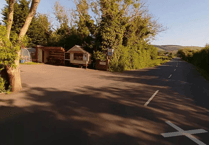There has been a second outbreak of avian influenza in the Isle of Man.
Five feral chickens were found dead near the side of a road in Tholt-y-Will.
The birds were collected on Monday and samples sent to the UK for analysis, it has now been confirmed that they died from the same H5N1 strain that killed 11 geese last week.
The remaining birds are being culled.
It means the A14 road connecting Sulby and the Mountain Roadis closed between 12.30 and 3pm.
A lay-by on the road will remain out of bounds so it can be thoroughly disinfected to further reduce the risk of the virus spreading.
As the feral chickens are classed as wild birds, a second ’protection zone’ is not legally required so restrictions will remain the same as those declared on Sunday.
An all-island ’surveillance zone’ remains in place and keepers should house their birds, practise good biosecurity and disinfect boots and equipment regularly.
At this time no live poultry should be moved or off the Island, without consultation and agreement with DEFA.
Chief veterinary officer Amy Beckett said: ’We continue to ask poultry keepers to house their birds and urge the public not to touch any ill or dead birds.’
Following confirmation of the initial outbreak on Sunday the department issued advice regarding the feeding of wild birds, which it has now updated following further risk assessments be carried out.
Dr Beckett added: ’After careful monitoring of the situation over the last five days we continue to ask people not to feed wild waterfowl or chickens as these species are most susceptible to carrying and spreading the virus. However, if you do not keep birds on your land, the risk of feeding garden birds is considered "low" and is allowed.’
If people choose to do this they are advised to keep feeding tables and hanging feeders clean and change drinking water regularly.
More information can be found on the DEFA website and anyone who suspects a case, or has in their possession a bird or carcass that they suspect has the disease, should contact the Animal Heath Team by emailing [email protected] or calling 685844.


.png?width=209&height=140&crop=209:145,smart&quality=75)

-(2).jpeg?width=209&height=140&crop=209:145,smart&quality=75)